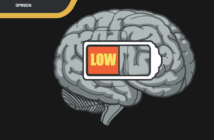CPA Samwel Baraka Ochieng
Threat or Opportunity?
The founding CEO of the Allen Institute for Artificial Intelligence, Oren Etzioni, said, “Artificial Intelligence (AI) is neither good nor evil. It’s a tool. It’s a technology for us to use.” This statement prompted me to ask ChatGPT, an online AI-driven language processing tool, whether it should be considered a threat or an opportunity. ChatGPT responded by first clarifying its role as an AI language model, stating that it lacks personal motivations or intentions. Its perception as a threat or an opportunity hinges on how humans develop, deploy, and utilize it. Like any powerful technology, AI can be utilized in positive or negative ways. It can provide significant benefits to humanity, such as improving healthcare, assisting in scientific research, optimizing resource allocation, and advancing various industries.
AI has the potential to help solve complex problems and enhance our understanding of the world. However, caution must be exercised, and responsible use of AI is crucial. Legitimate concerns exist regarding the ethical implications and potential risks associated with AI, such as privacy concerns, algorithmic bias, job displacement, and the potential for malicious use. ChatGPT continued to say that it’s the responsibility of humans to ensure that AI is developed and deployed in a manner that aligns with values, respects human rights, and prioritizes societal well-being. Ultimately, the impact of AI on humanity depends on the choices and actions of developers, users, and policymakers. In 2014, Elon Musk warned at MIT’s AeroAstro Centennial Symposium, “I’m increasingly inclined to think that there should be some regulatory oversight, maybe at the national and international level, just to make sure that we don’t do something very foolish. I mean, with artificial intelligence we’re summoning the demon.” Therefore, fostering a responsible and inclusive approach to AI development and deployment is essential to maximize its potential as an opportunity while minimizing potential threats.
In today’s brave new world, the role of big data is of utmost importance. Qlik, a prominent software company dedicated to enhancing enterprise progress through effective data utilization, defines big data as vast, complex, and fast-paced datasets. These datasets serve as the driving force behind the advancement of AI-driven decision-making. By delving into and analyzing big data, valuable information and insights can be extracted. This process, known as big data analytics, utilizes AI and machine learning techniques to merge and scrutinize extensive datasets in order to uncover patterns and generate actionable insights that enhance making quicker and more well-informed decisions based on data, ultimately improving efficiency and profitability. The interconnection between big data and AI is acutely intertwined, as AI heavily relies on comprehensive data to refine its decision-making capabilities. Subsequently, big data analytics leverages AI to optimize the analysis of data.
ChatGPT was created and launched by OpenAI, an AI research and deployment company. Today, AI is a buzzword for its potential to radically revolutionize society, and there seems to be no silver bullet for averting its emergence and prominence. On its website, OpenAI displays its vision of ensuring that artificial general intelligence—AI systems that are generally smarter than humans—benefits all of humanity. So, and of course, under responsible use, AI is created with the intention of benefiting humanity rather than posing a threat to it, as emphasized in the above ChatGPT’s response. An American company that offers data-driven marketing services, TechTarget, defines AI as the simulation of human intelligence processes by machines, especially computer systems. They divulge that AI systems work by ingesting large amounts of labeled training data, analyzing the data for correlations and patterns, and using these patterns to make predictions about future states. In this way, a ChatBot that is fed examples of text can learn to generate lifelike exchanges with people, or an image recognition tool can learn to identify and describe objects in images by reviewing millions of examples. New, rapidly improving generative AI techniques can create realistic text, images, music, and other media. In addition, they persuade us that AI is important for its potential to change how we live, work, and play. The capability of AI tools to complete jobs quickly and with relatively few errors makes them ideal for repetitive, detail-oriented tasks. AI’s transformative potential offers both threats and opportunities. Despite AI’s benefits for most global economies, associated costs, technical challenges, privacy issues, and unemployment challenges pose a threat to many emerging economies.
AI systems like ChatGPT have certain limitations that make them fall short of human capability. These limitations include the potential for generating incorrect information, producing harmful instructions or biased content, and having limited knowledge of events that have occurred after 2021 (as displayed in a welcome banner in the ChatGPT ChatBot interface). For instance, I asked, “Who is the current Kenyan president?” ChatGPT provided a response based on its knowledge cutoff of September 2021 and mentioned Uhuru Kenyatta as the president. However, it emphasized the need to verify the information through reliable news sources or official government websites. Based on the disclaimer, it’s important to note that AIs like ChatGPT don’t have the capacity to surf the internet for themselves to fetch up-to-date information to be able to offer comprehensive and error-free relevant responses. No wonder the New York Times published a story on May 27, 2023, that described a lawyer, Mr. Steven A. Schwartz, representing a man who sued an airline, where Mr. Schwartz had irresponsibly relied on AI to prepare a court filing. The lawyer used ChatGPT to generate the brief, but it did not turn out well for his session. The judge, as noted in the New York Times story by Benjamin Weiser, expressed astonishment at the submission, describing it as replete with “bogus judicial decisions, bogus quotes, and bogus internal citations.” This incident underscores the disastrous outcome that may arise from the misuse of AI tools and highlights the importance of using AI responsibly and the need to verify outputs through reliable sources.
In 2020, an International Monetary Fund (IMF) working paper addressed the question, “Will the AI Revolution Cause a Great Divergence?” The paper aimed to analyze the potential consequences of a new wave of technological advancements, particularly artificial intelligence, on developing countries. The authors focused on the substitution of labor by AI and explored the implications for countries with varying levels of total factor productivity (TFP). The paper’s assumptions were based on the notion that the AI revolution could be represented as an increase in the productivity of a specific type of capital that closely substitutes for labor. Additionally, the authors assumed that the primary difference between advanced and developing nations lies in their respective levels of TFP. The study concluded that AI and the widespread utilization of robots across various sectors pose a significant challenge to developing countries. These countries currently benefit from the complementary relationship between humans and machines. However, this complementary nature is threatened by increasing automation. Moreover, developing nations that rely on anticipated demographic transitions for economic growth might face a more arduous landscape. The paper highlights that by 2030, over half of the global labor force’s growth is expected to come from the African continent. However, the authors expressed concerns that robots might seize these job opportunities. They warn that unless there is a rapid and substantial shift towards productivity gains and investment in education, the much-anticipated demographic transition in Africa could yield negative rather than positive dividends. The findings of the IMF working paper serve as a warning that the AI revolution, if not properly managed, could exacerbate economic disparities between advanced and developing countries, calling for the need to prioritize productivity improvements and educational investments to adapt to the changing technological landscape and ensure positive outcomes from the demographic transitions.
In conclusion, in the face of urgent contemporary global challenges, artificial intelligence emerges as a formidable tool with the potential to revolutionize our approaches to addressing the issues. With its unique capabilities, AI can greatly contribute to our understanding of climate patterns by accurately predicting environmental impacts, optimizing resource management, and fostering the development of innovative solutions. By harnessing the full potential of AI, we can enhance our efforts to mitigate and adapt to the effects of climate change, paving the way for a more sustainable and resilient future. As we embark on this journey, we enter a brave new world of possibilities where AI acts as a catalyst for positive change in safeguarding our planet and shaping a better tomorrow.
The author is a member of ICPAK




